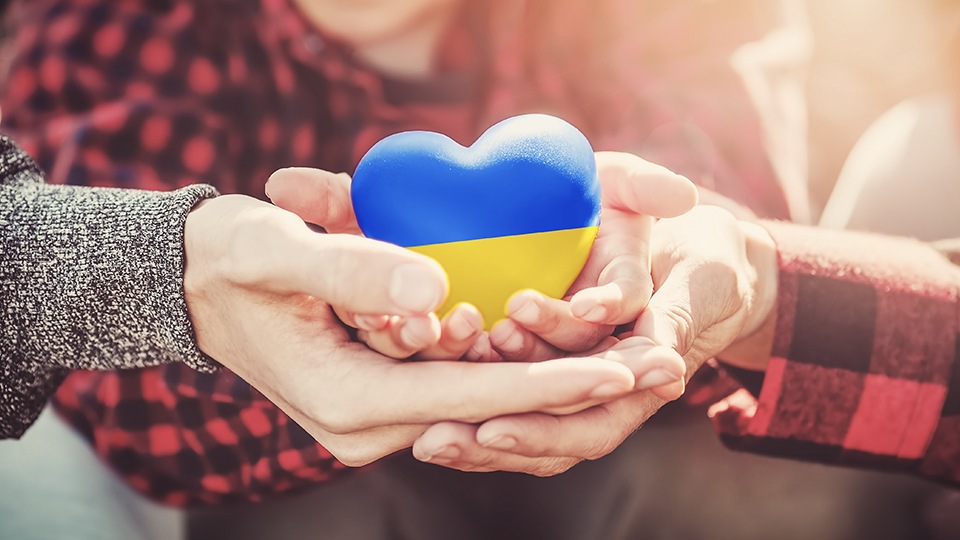Day #20 since Putin declared war on Ukraine
The war in Ukraine is gaining momentum: the Russian army is closing in on Kyiv despite facing unexpectedly strong resistance; Kherson has fallen; leading multi-national organisations have left Russia; while the biggest refugee crisis in modern times is unfolding with nearly three million Ukrainians having already fled their country.
On a news report, I see a woman with a child, just a toddler, her broken dreams and accumulated trauma packed into a small suitcase. She searches trepidatiously for a new home. “She doesn’t have many options”, I think to myself from the comfort of my own warm home, feeling a mixture of guilt, anxiety and a sense of urgency. I see Zelensky’s increasingly drawn face on TV, pleading with the UK parliament for help, masterfully contextualising his plea with quotes from Shakespeare and Churchill. I am overwhelmed by a sense of betrayal on his and his country’s behalf. I cannot stop imagining how it must feel to be abandoned by the world in this time of their greatest need. My feelings of guilt, despair and helplessness intensify. I can’t find a place at home where I feel comfortable. I am constantly restless.
Most people I speak with, especially women, share my feelings of despair and helplessness. As the human suffering intensifies, watching or reading the news becomes even more torturous than on day one or two of the war. Articles with lists of how to help are shared constantly on social media. We select the items on these lists that we can act on, although the powerful feeling of helplessness, of being out of control, persist.
Grief has become another anchor feeling, pinned onto the map of our daily emotions. In the words of Lois Pimentel, a counsellor based in London, “We are grieving our lost civilisation”. The civilisation that we thought guaranteed us peace following the immeasurable loss of life in WW1 and WW2. But we have been shaken out of our complacency. WW3 is now part of the rhetoric we hear from political analysts, the use of nukes is on the cards again, leaving most of us grieving these morbid realisations. Grief is by nature unpredictable and this deepens my sense of being out of control. Because I am.
So I start thinking about what we can do to help us regain some sense of control while following the war in Ukraine and the hugely consequential geo-political shifts it is triggering. I break down the possible efforts using the familiar and popular framework of body, mind and soul. And I realise that there are things that can make me and those I speak with feel more empowered. Or perhaps to be more accurate, less helpless.
A few hours after writing these thoughts I interview Iryna Slavinska, Executive Producer for Radio Culture at Suspilne, Ukraine’s public broadcasting company, while she is hiding in a shelter in response to yet another syren bomb alert. Her voice is equanimous and sober. Her words moving and consequential. She mourns her female journalist colleague Oleksandra
Kuvshynova who had been killed an hour earlier by the Russians alongside the Fox News Journalist. At the end of the interview she shares something deeply moving that unexpectedly gives my feeling of empowerment a new lease of life. “Yesterday I had an interesting experience. My colleague and I were working last night during the broadcasting of the Concert for Ukraine at the MET Opera in New York. We were commenting and presenting the show here, in Ukrainian, for our Ukrainian audience… this is another kind of war experience. I felt so happy to listen to this act of solidarity”. Slavinska’s reflections made me realise that every little thing we do in our efforts to engage, no matter how big or small we assess it to be, matters.
Here are a few ideas to get you started feeling less helpless…
Helping your Mind
1. Connect with friends who are directly or indirectly impacted by the war to offer your support. This will make you feel a bit better.
2. Limit your intake of news to protect yourself from the intense pain and anxiety that ongoing news consumption induces. Look at the news no more than once or twice a day. Focus more on reading long-form journalism which offers unique and more nuanced perspectives.
3. Share your thoughts and feelings with friends and loved ones around you. You will quickly feel less isolated and recognise how interconnected we all are.
4. Donate, fundraise, protest, write and/or volunteer. Check out the articles with lists of all the ways you can help. There are a few.
Helping your Body
5. Exercise to feel a sense of control, even if it is just control of your own body.
6. Shake off anxiety by dancing. Find a song or two you love and dance to it to remind yourself that you can still feel joy, even in times of uncertainty and loss.
Helping your Soul
7. Have faith that love and solidarity will prevail in the end. Believe in the good winning out over evil. It always does when it comes to major wars.
8. When sense and sensibility fall short, pray for peace, and the alleviation of the suffering of those you have no power to help.






